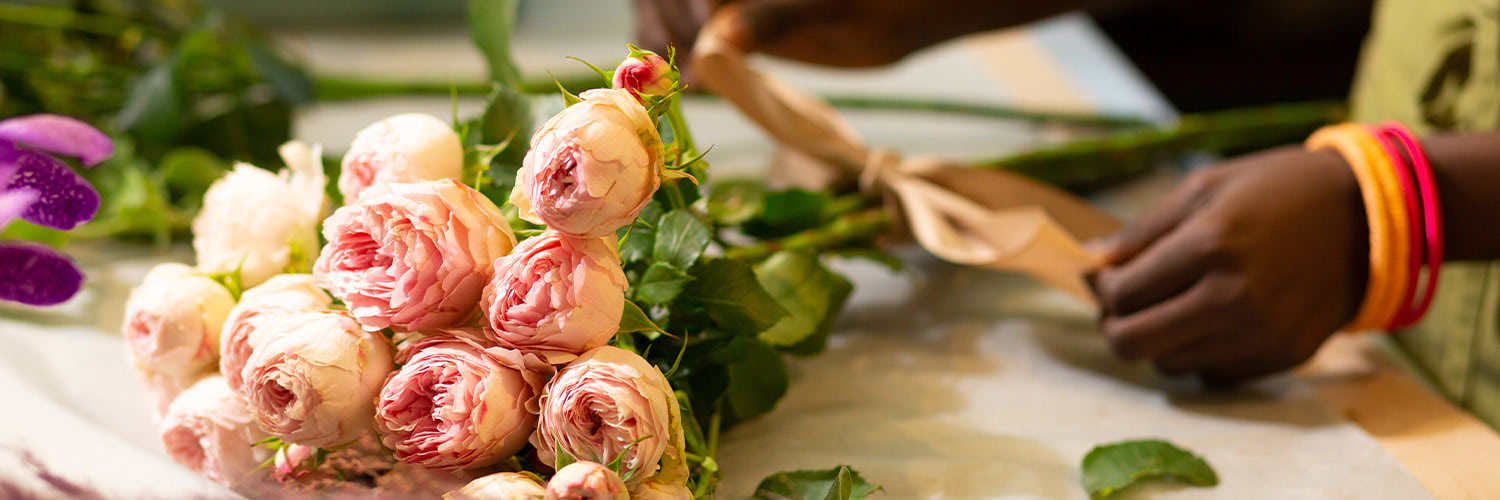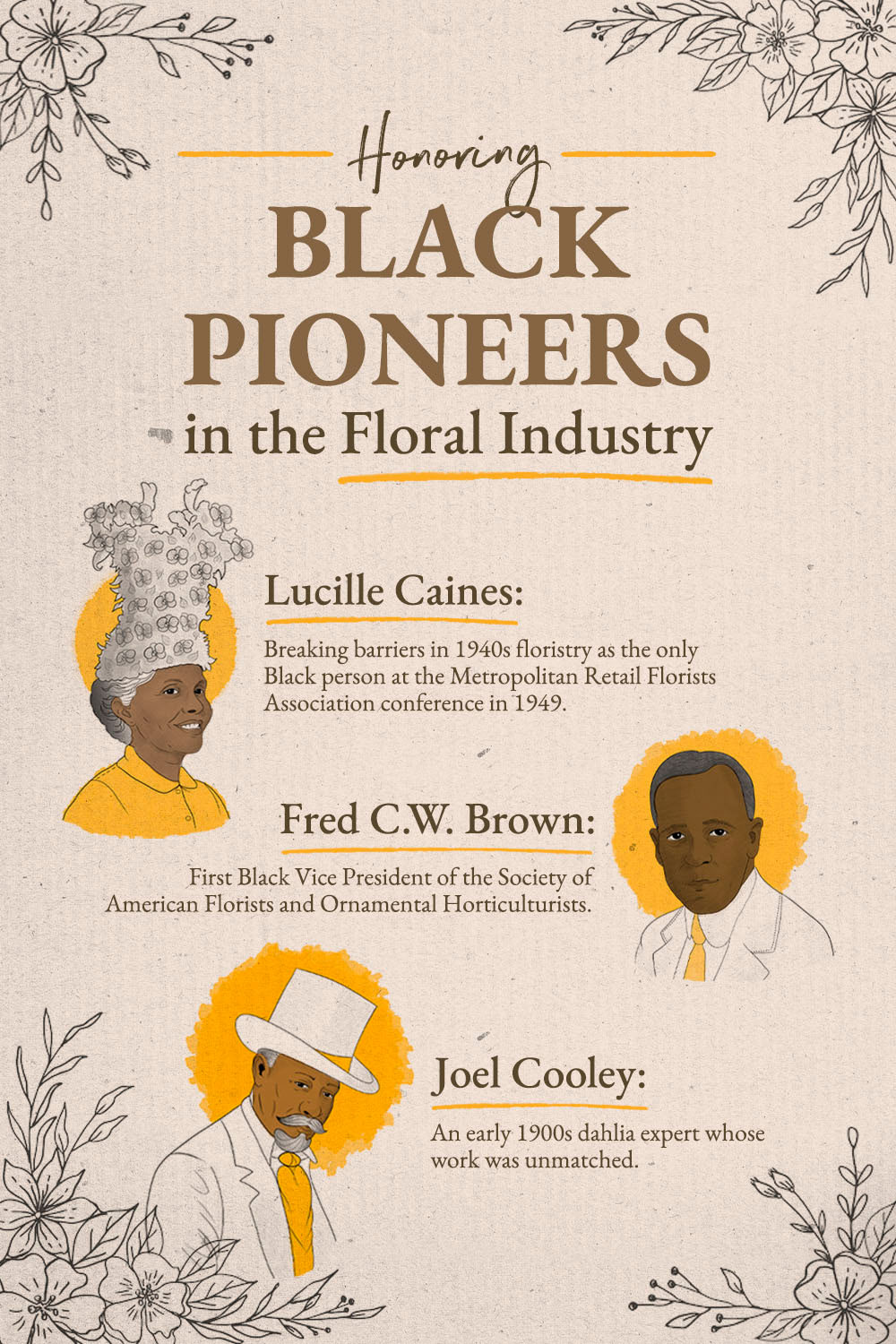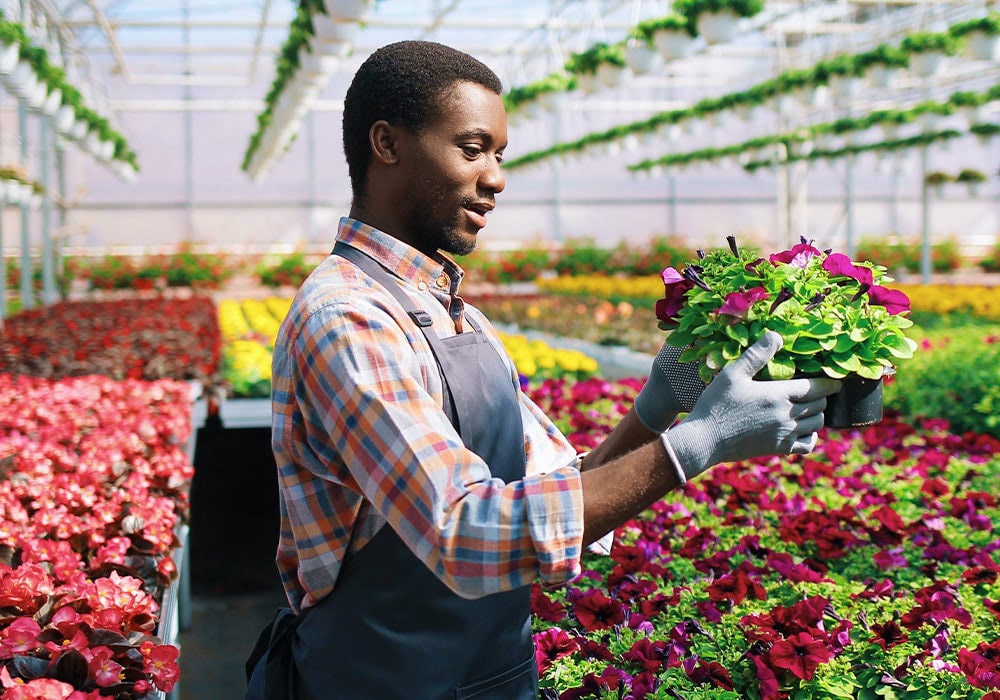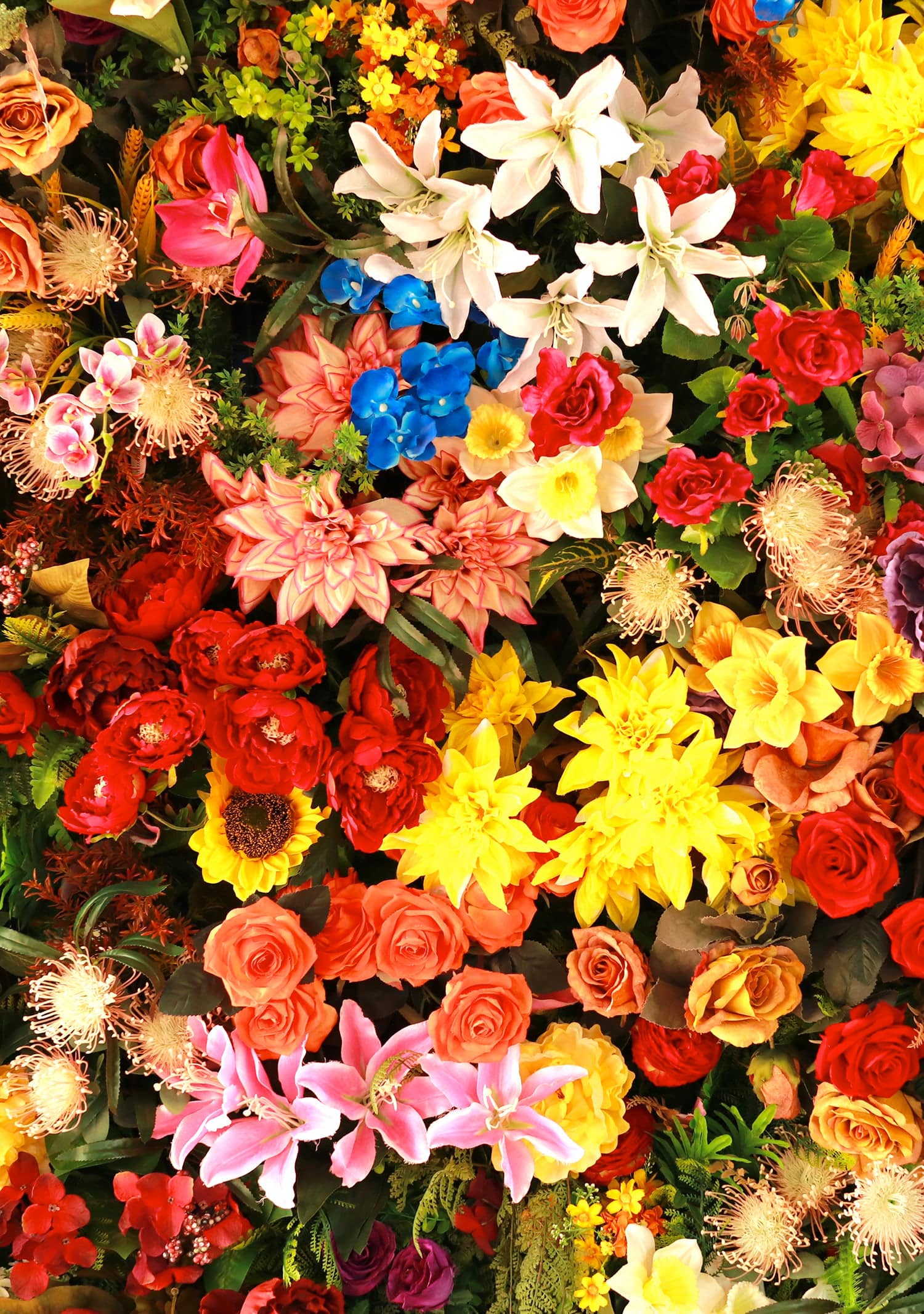

Black History in the Floral Industry
Black Americans have been cultivating and designing flowers for as long as they've lived on the land that has become the United States. They've used blooms to beautify their spaces, spread joy to loved ones, and honor the dead. According to research done by esteemed horticulturist and scholar Abra Lee, in the wake of the destruction of the Civil War, formerly enslaved Africans returned to the gardens on the plantations where they lived to salvage the seeds, roots, and cuttings they'd previously tended to. They took these heirlooms to their own homes and continued their gardening practices, passing their knowledge from generation to generation.
By the late 1800s, gardens and flower farms helmed by Black Americans began to spread and flourish. Black floriculturists began selling flowers at stands, markets, and shops in cities like New York, Charleston, and more. Movers and shakers - primarily Black women - in floriculture thrived in these cities, where floristry gave Black Americans a pathway to independence and financial security. "Boss" Clarence Powers may have been New York's first flower vendor, but that may be lore as opposed to historical fact. Other notable names in Black floristry include skilled hobbyist Joel Cooley, whose award-winning work with dahlias in the early 1900s was unparalleled; Benjamin F. Butler, a florist who was active in the 1920s; Fred C. W. Brown, who served as Vice President of the Society of American Florists and Ornament Horticulturists during the 1920s; and Lucille Caines (who moved North in the great migration from Georgia), owner of Lucille's and the only Black member to compete at the Metropolitan Retail Florists Association conference in 1949. Blooms they were selling included roses, carnations, orchids, daisies, gladiolas, peonies, and more. Black floriculturists were esteemed in their communities, often sharing their wealth of knowledge and teaching classes. Some were active in civil rights actions while others had their finger on the pulse on the comings and goings of everyone in their circles.


The future is bright for Black floristry and floriculture, with more skilled growers and designers entering and revolutionizing the industry every day. As each person makes their mark in floral cultivation and design, bringing stories to life with every arrangement, the collective body of floristry will become enriched, elevated, and representative of every one of us.




